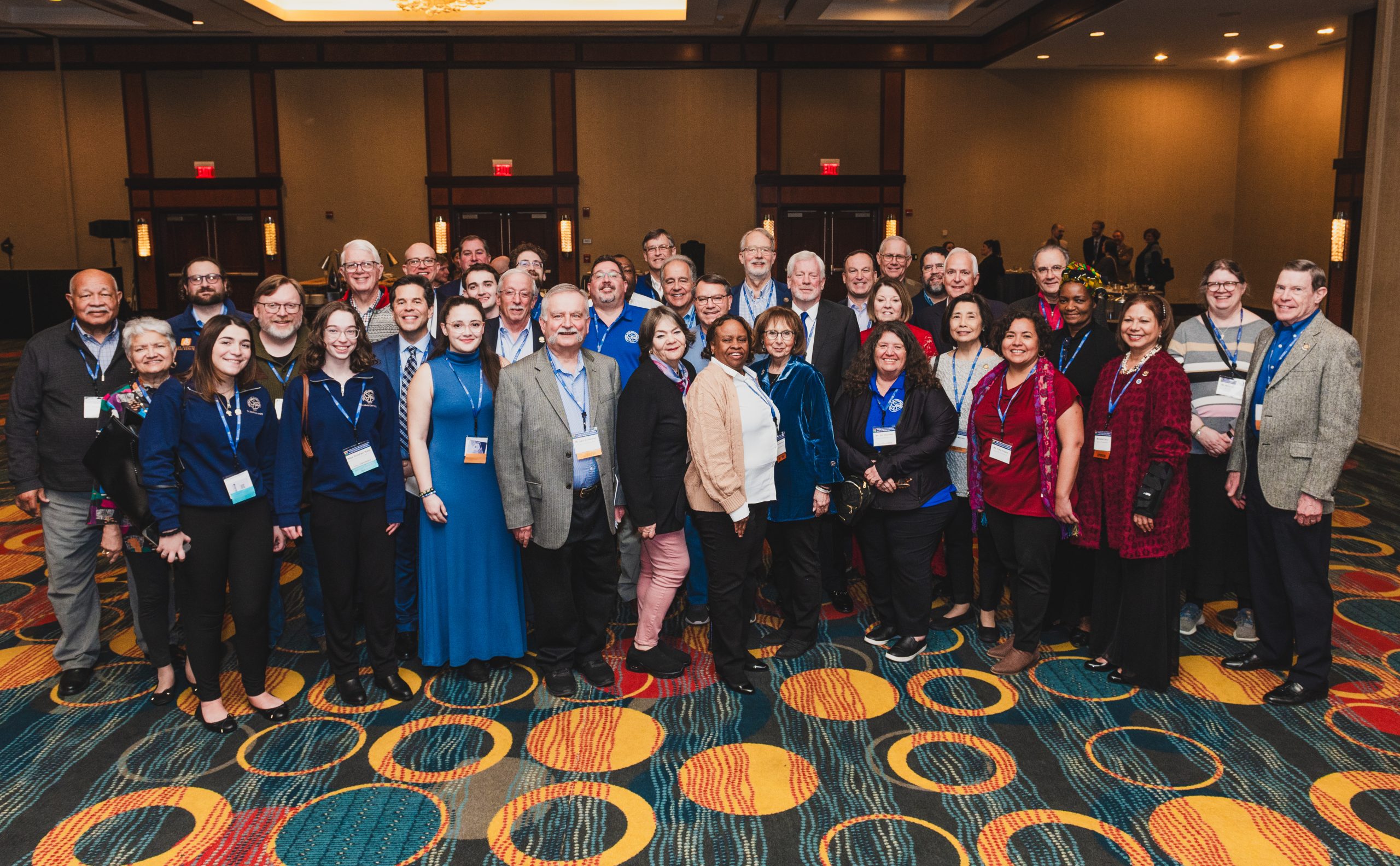Our Vincentian Charism
I just attended my first Midyear Business Meeting as your National CEO, and it was fantastic! It was wonderful to reunite with Vincentians that I have known for decades, and to meet others for the first time.
The Charism of our Society was on full display. As we all know, what a gift it is from the Holy Spirit to be a part of our Vincentian call to seek and find the forgotten. When we fulfill our call, we encounter Jesus in everyone we are blessed to serve.
Many Vincentians told me that they felt this was the best Midyear Meeting they have ever attended. There were a lot of reasons it was a great meeting.
First, when we gather, we fulfill our Vincentian call to grow spiritually and in friendship. That cannot happen at a virtual Zoom meeting.
Second, the focus of this year’s meeting was on Governance, Finance, and the Standards of Excellence, critical parts of good stewardship and essential for achieving Blessed Frédéric’s vision of a commitment to accountability within our Society. Special thanks to John Hallissy and Ed McCarthy for their excellent presentations on this subject matter.
Third, we were able to discuss and celebrate all our recent accomplishments. Our Regional Vice Presidents are working together to position our Councils, Conferences, and Special Works for success in keeping hope alive for the most vulnerable throughout our great country.
National President John Berry gave a State of the Society comprehensive report on the activities of our National Council. He provided an overview of how well Vision SVdP is shaping up, and how the information provided by our membership will lay out the roadmap for our future.
Sean Meyers gave the final report and a detailed plan from our Technology Task Force. His report highlighted our vision of how the use of technology will be key to the bright future of our Society.
It was also reported that our Society will officially open our Washington D.C. Office on April 4. As one of the largest lay Catholic groups in the country, this new office will give us the opportunity to share the stories of those we are blessed to serve with our leaders, but most importantly, with the whole country.
Earlier in this article, I mentioned the encounters we are blessed to have with those we serve. These encounters are priceless, and that is why it is so important for us to be that voice for the poor. We need to share their stories so together we can unite as a country to end some of the things we see on our encounters with those most in need.
How heartbreaking it is to visit a home with children who cannot even go to bed hungry because they do not even have a bed to sleep on.
How important are our encounters at SVdP Special Works, where people who are working come into our pharmacies because they cannot afford their life-sustaining medications.
We provide food, beds, prescription medicines, and so much more! Where would the most vulnerable be in our country or world without the Society?
Our Vincentian Charism is such a special gift — and so is the wisdom we share in our Vincentian friendship.
Several decades ago, a Vincentian leader in my hometown shared some wisdom with me that I cherish to this day. He was a two-time Council President in the Diocese of Baton Rouge, serving six years in the 1970s and six years in the 1990s.
Marvin Vincent Ourso was a Vincentian for almost 70 years before he went to his rest in heaven.
Many years ago, Marvin and I were having a conversation about how people can grow together with different views and thoughts on a variety of issues.
At the time, Marvin was in his early 70s, and I was in my late 20s. I was trying to understand the complex nature of relationships.
Marvin said, “As Vincentians, we are all trying to grow closer to Jesus. We are trying to follow His example.” He said, “Michael, you know that Jesus was both liberal and conservative (not in a political sense). He knows when to be liberal and when to be conservative. He is divine and we are not, but we need to do our best to look at everything through the lens that Jesus would want us to.”
Marvin went on to say, “For us brother and sister Vincentians, the most important thing we have is Christ and our friendship. Nothing can divide us if we grow together spiritually.”
These words of wisdom are even more important to me today than when Marvin shared them with me over 30 years ago.
That is what I saw on display at our Midyear Meeting: Vincentians embracing one another, sharing wisdom, and growing in spiritual friendship.
It is a blessing for me to meet and get to know each of you. You are God’s gift to our Society and all those we are blessed to serve!
Best wishes in Christ,
Michael J. Acaldo
National CEO



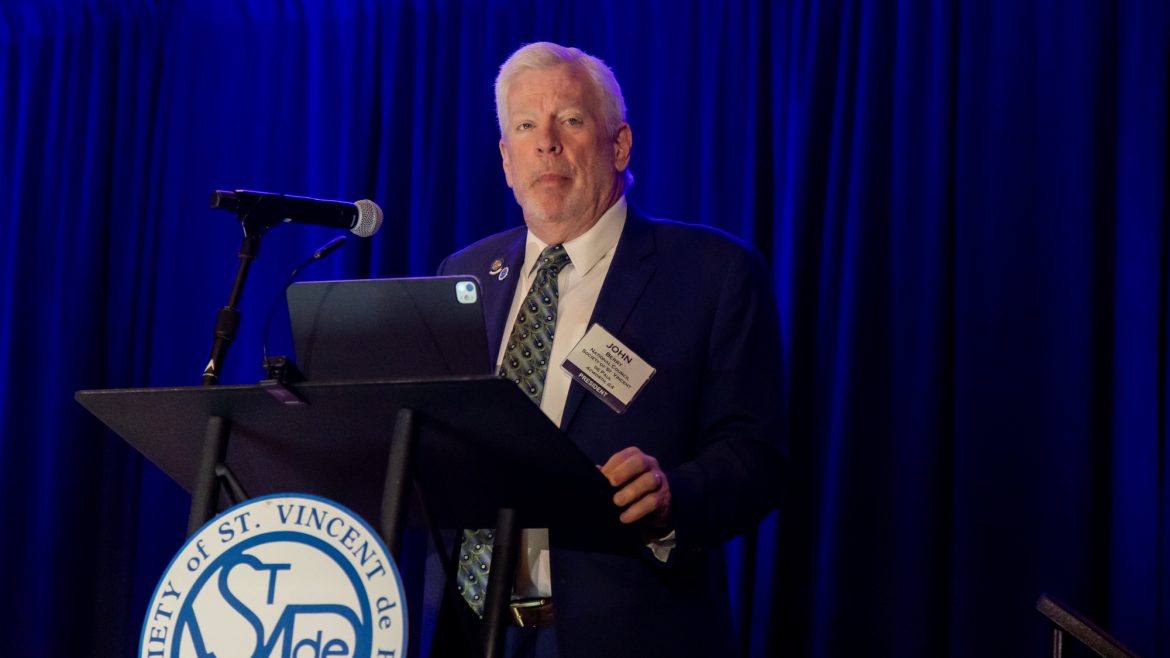
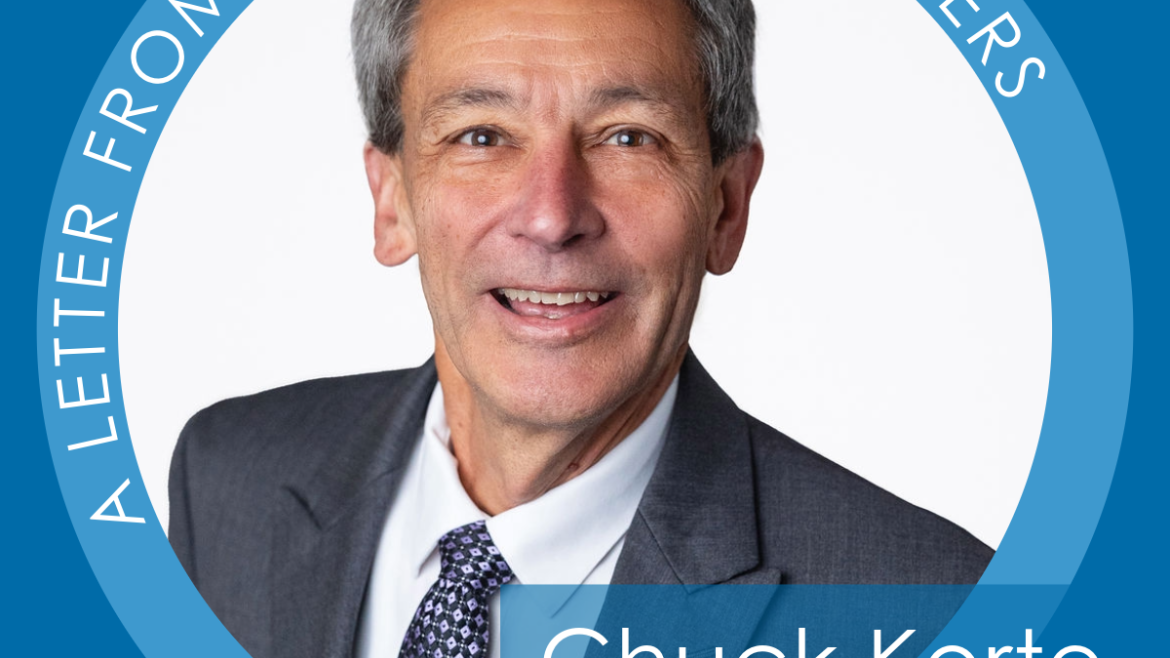

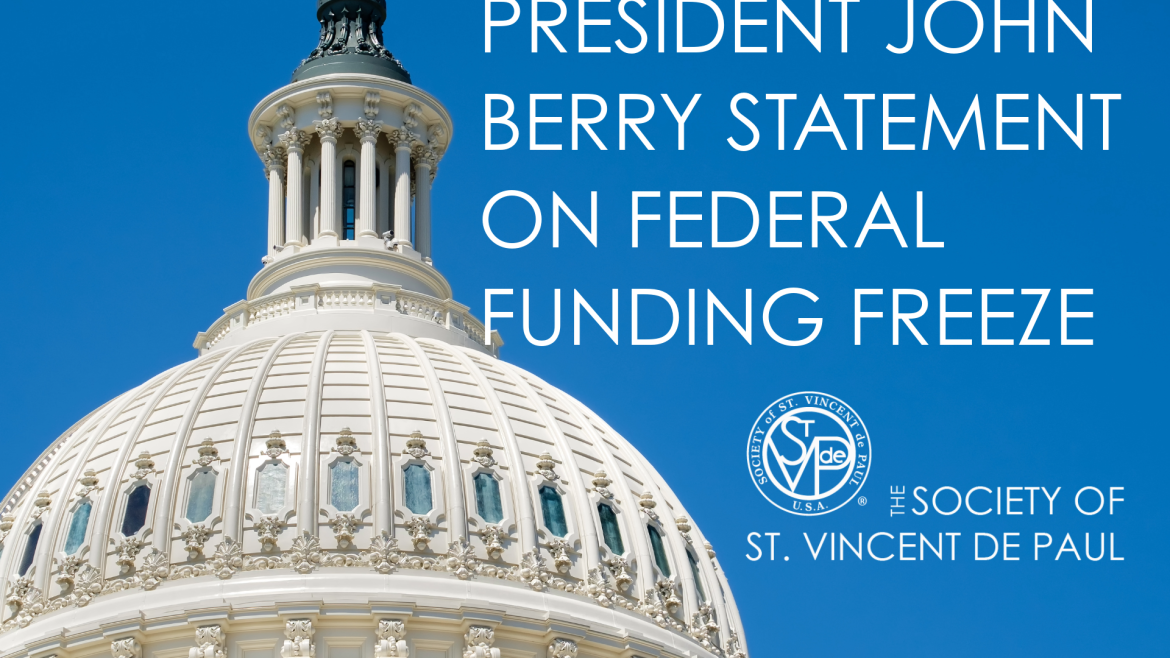
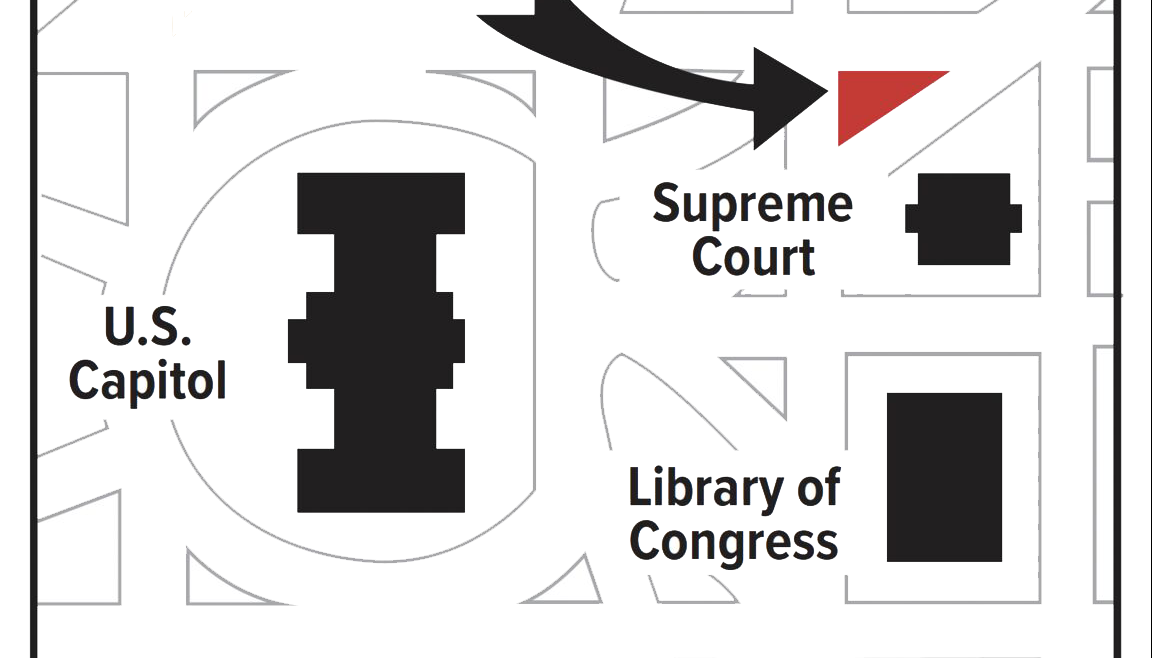
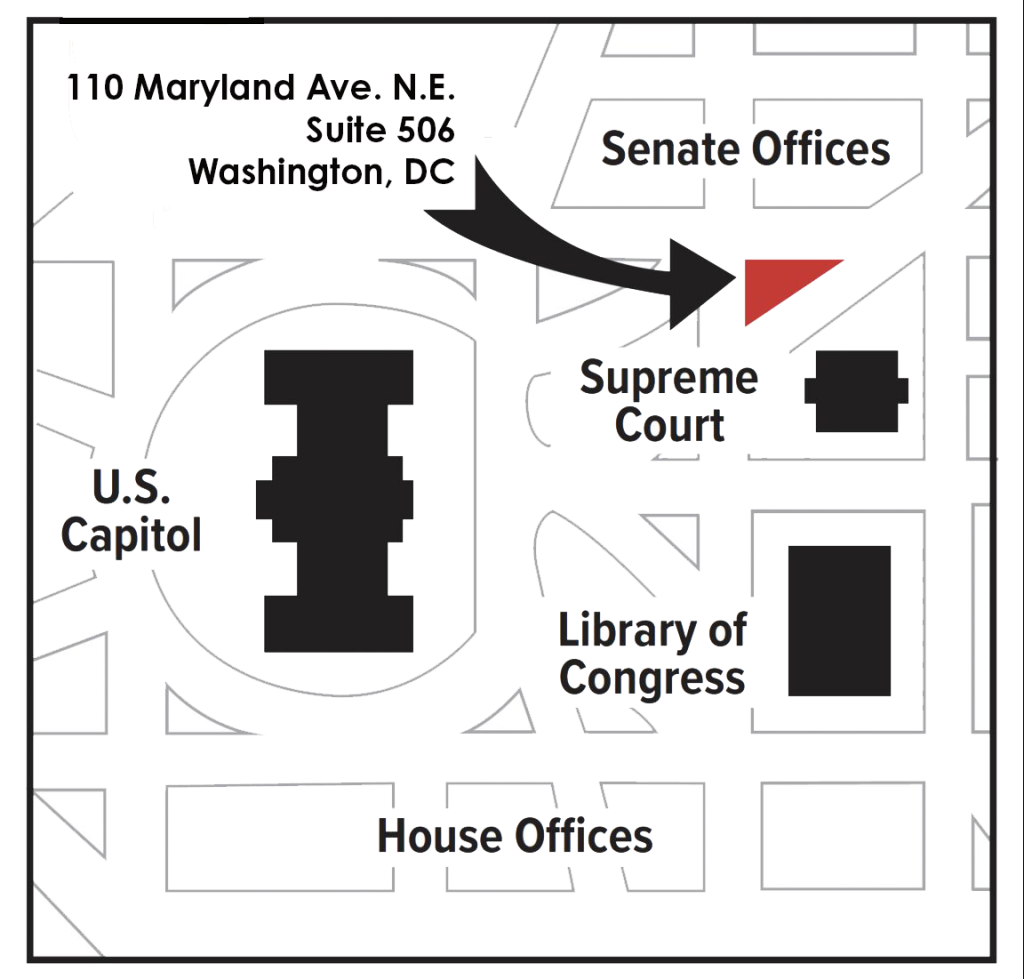 Published January 28, 2025
Published January 28, 2025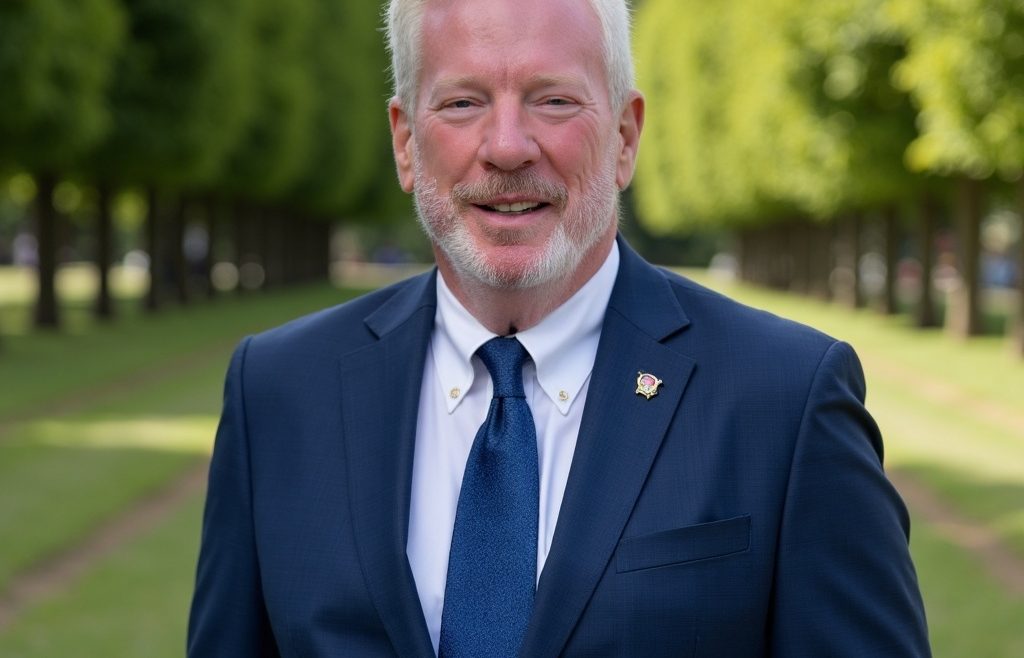
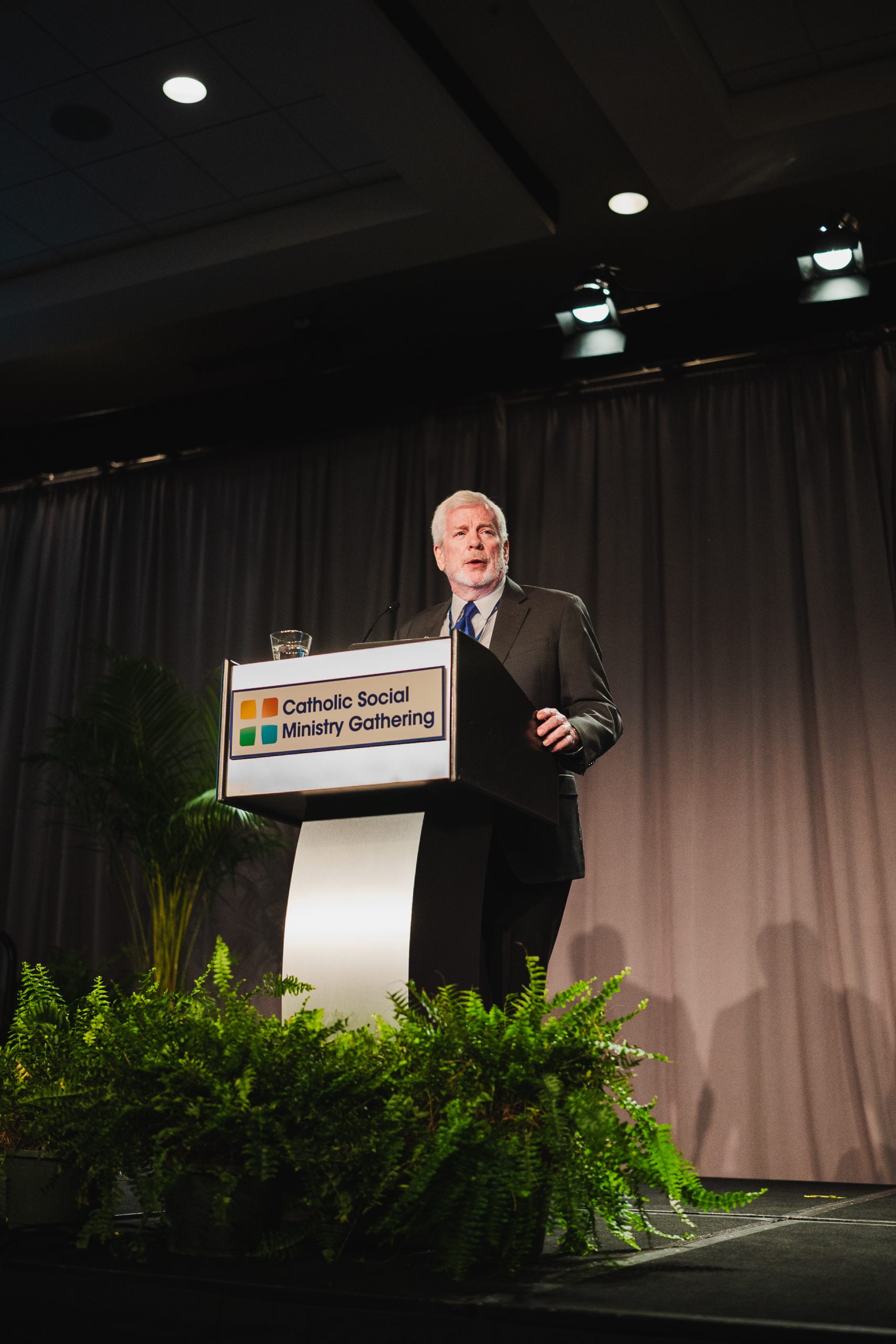 During our time together, we will be discussing issues important to our ministries and those we serve. We will discuss the calls to action required to address the many needs in the world. And we will also celebrate the profound joy that comes from growing in holiness through our response to Christ’s call to feed the hungry, clothe the naked, give shelter to the homeless, welcome the stranger, minister to the sick, and visit the prisoner. The work of every Ministry represented here is a vital lifeline for countless people in need, individuals and families often standing at the brink of despair, searching for a glimmer of hope.
During our time together, we will be discussing issues important to our ministries and those we serve. We will discuss the calls to action required to address the many needs in the world. And we will also celebrate the profound joy that comes from growing in holiness through our response to Christ’s call to feed the hungry, clothe the naked, give shelter to the homeless, welcome the stranger, minister to the sick, and visit the prisoner. The work of every Ministry represented here is a vital lifeline for countless people in need, individuals and families often standing at the brink of despair, searching for a glimmer of hope.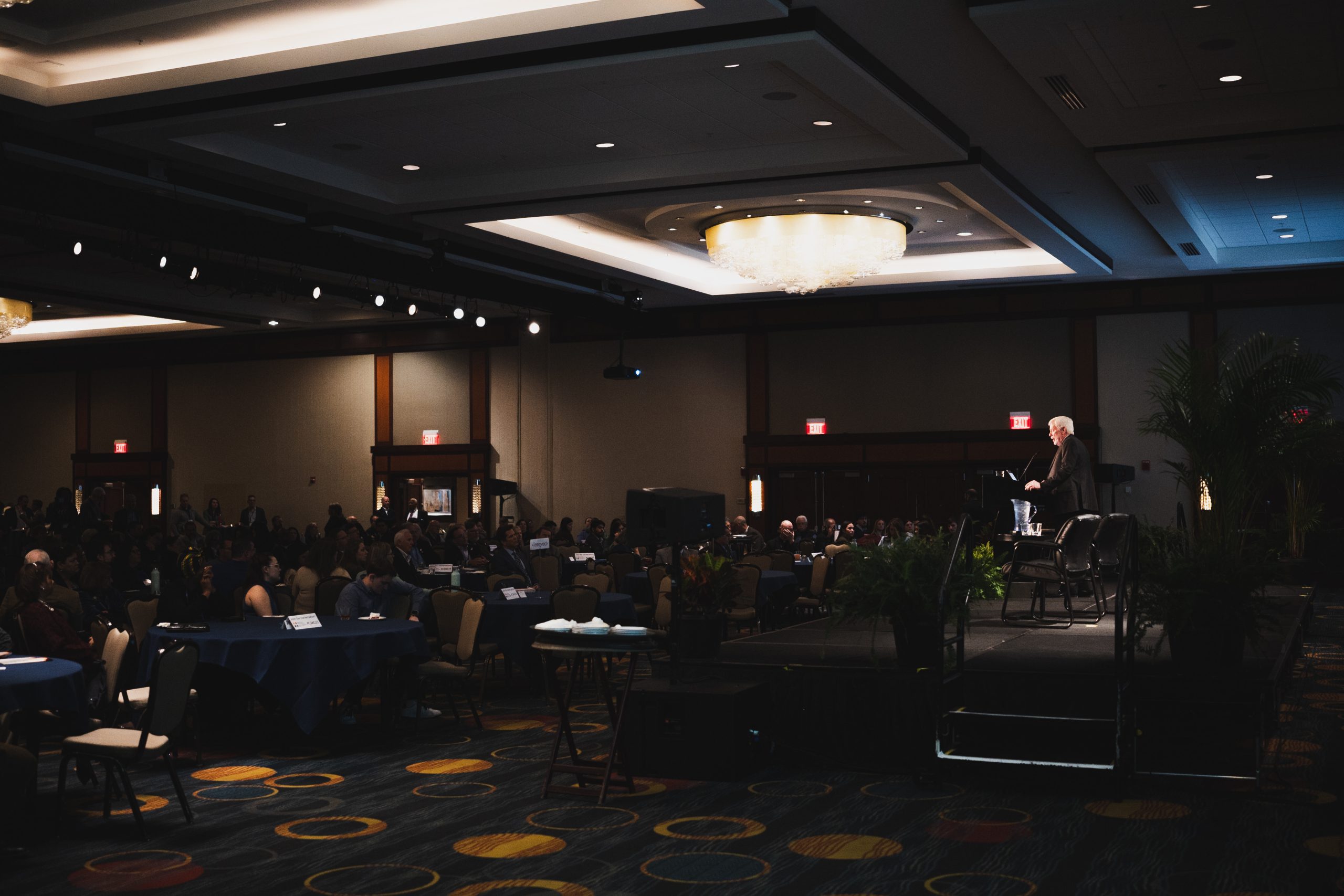 Our call to serve the poor, the refugee, the sick, and ALL those who suffer injustice and oppression is deeply rooted in Scripture. The Old Testament prophets often reminded Israel of their duty to care for the marginalized. We hear
Our call to serve the poor, the refugee, the sick, and ALL those who suffer injustice and oppression is deeply rooted in Scripture. The Old Testament prophets often reminded Israel of their duty to care for the marginalized. We hear 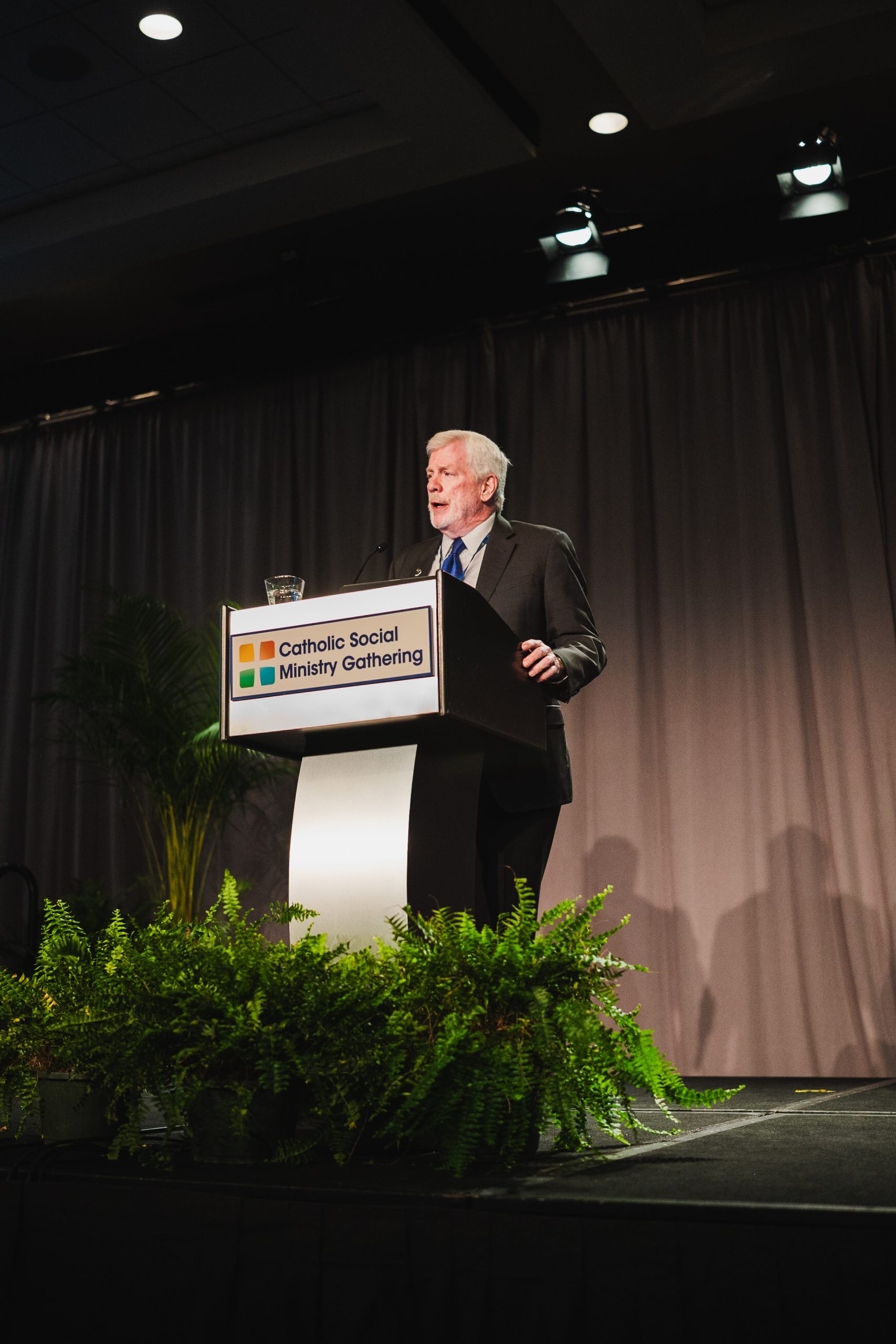 Our Vincentians understand the words that
Our Vincentians understand the words that 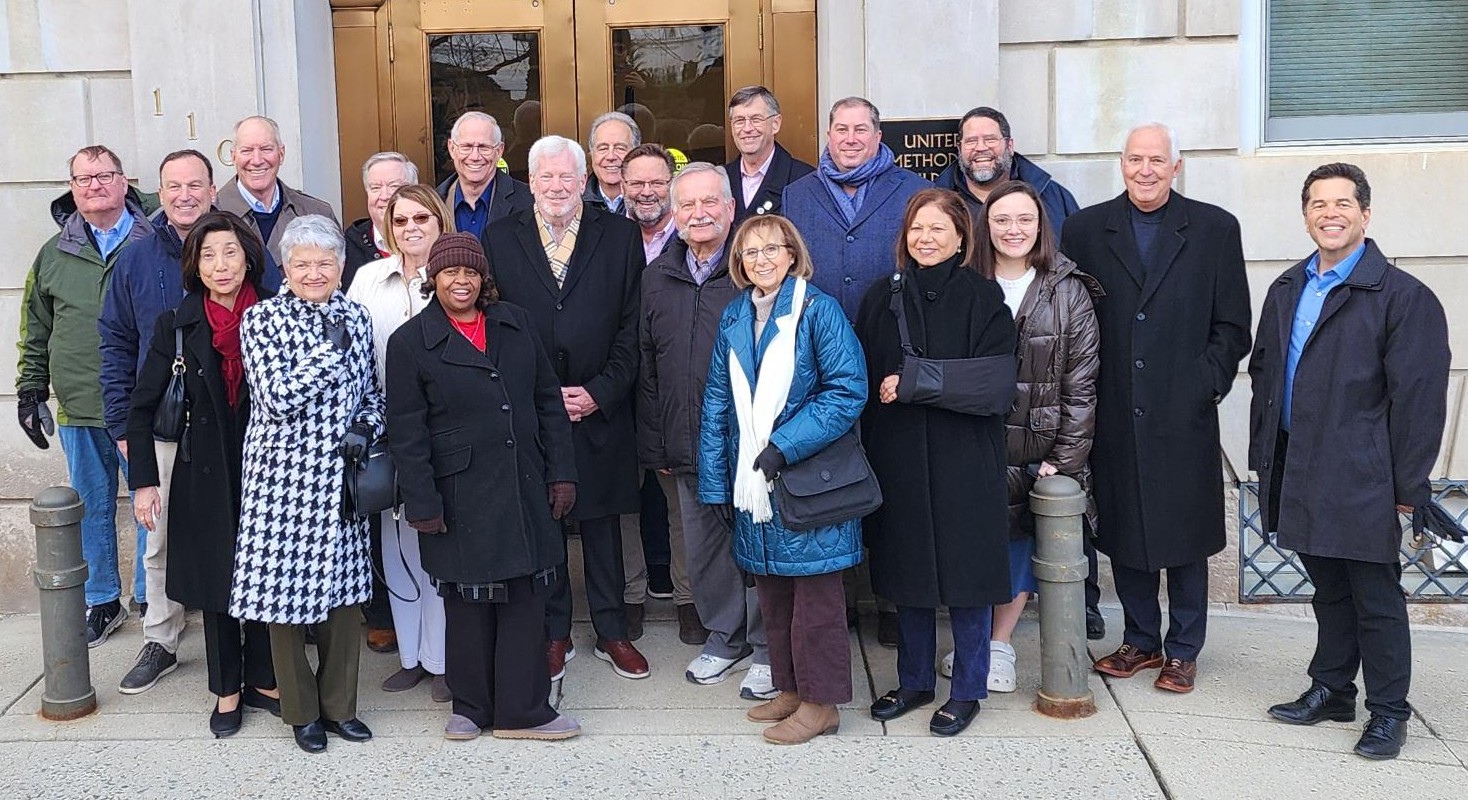 The stark and shocking reality of America and the world today is that millions of our brothers and sisters lack basic necessities — affordable housing, nutritious food, and quality healthcare. Families live on the streets, children go to bed hungry, and the cycle of poverty persists. Imagine a mother putting her children down to sleep on a cold night like tonight — with no bed and no roof overhead. Or a child going to school hungry, unable to focus on learning. This is the reality WE must change.
The stark and shocking reality of America and the world today is that millions of our brothers and sisters lack basic necessities — affordable housing, nutritious food, and quality healthcare. Families live on the streets, children go to bed hungry, and the cycle of poverty persists. Imagine a mother putting her children down to sleep on a cold night like tonight — with no bed and no roof overhead. Or a child going to school hungry, unable to focus on learning. This is the reality WE must change.